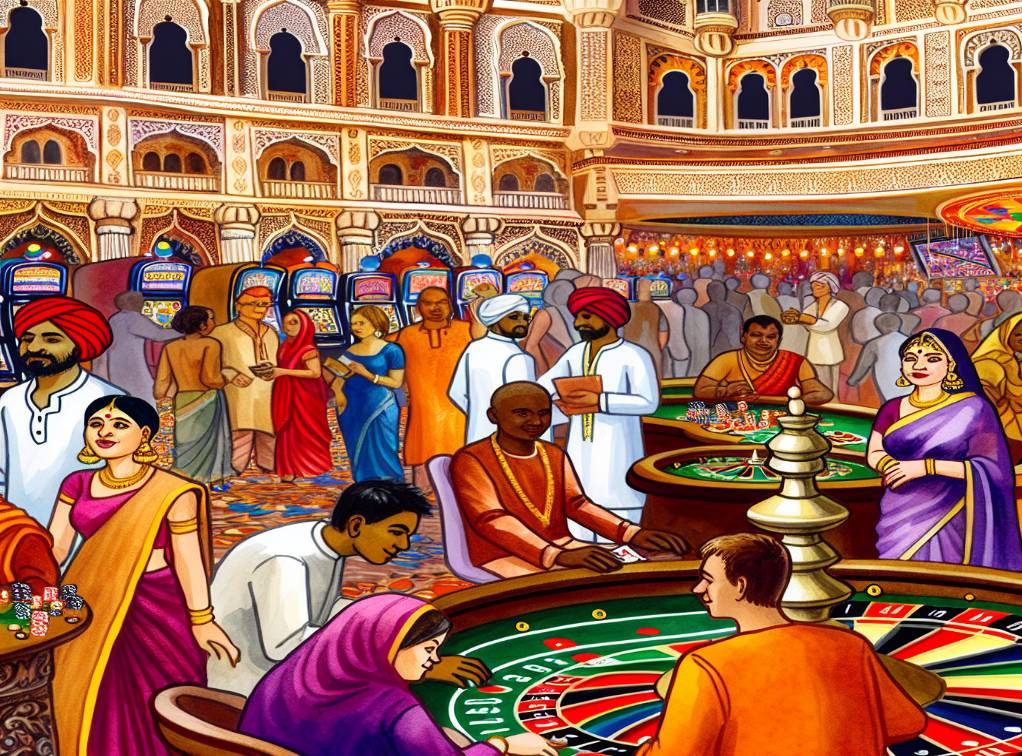India has a growing casino industry with a number of establishments located throughout the country. These casinos offer a range of games including poker, blackjack, roulette, and slot machines.
While the exact number of casinos in India is difficult to determine due to the ever-changing nature of the industry, it is estimated that there are approximately 20 casinos operating in the country.
Most of these casinos are located in the states of Goa and Sikkim, where gambling is legal. However, there are also a few casinos in other states such as Daman and Diu.
The casino industry in India is expected to continue to grow in the coming years, as more states consider legalizing gambling and more tourists are attracted to the country”s casinos.
Overview of Casino Industry in India
The casino industry in India has seen significant growth in recent years, with a number of states legalizing gambling and opening up casinos. This has led to a boom in the number of casinos operating in the country, offering a range of games and entertainment options to players.
One of the key drivers of growth in the Indian casino industry has been the rise of online gambling. With more and more Indians gaining access to the internet, online casinos have become increasingly popular, offering players the chance to enjoy their favorite games from the comfort of their own homes.
Despite the growth of online gambling, traditional brick-and-mortar casinos still play a significant role in the Indian market. These casinos offer a range of games, including popular options such as blackjack, roulette, and poker, as well as traditional Indian games like Andar Bahar and Teen Patti.
- Legalization of gambling in select states
- Rise of online gambling
- Traditional brick-and-mortar casinos
Legal Status of Casinos in India
Casinos in India operate in a legal grey area, with each state having its own laws and regulations governing gambling establishments.
While some states like Goa and Sikkim have legalized casinos, others such as Maharashtra and Tamil Nadu have strict anti-gambling laws in place.
Online gambling is also a contentious issue in India, with many states banning it outright while others have no specific laws addressing it.
The lack of a unified approach to regulating casinos has led to a thriving underground gambling scene in many parts of the country.
Overall, the legal status of casinos in India remains complex and varies greatly depending on the location.
Popular Casino Destinations in India
India is home to several popular casino destinations, attracting both locals and tourists from around the world.
One of the most well-known casino destinations in India is Goa, with its vibrant nightlife and luxurious casinos offering a wide range of games.
Another popular casino destination in India is Sikkim, known for its stunning natural beauty and high-end casino resorts.
Mumbai is also a popular choice for casino enthusiasts, with its bustling city life and top-notch casino facilities.
Other notable casino destinations in India include Kerala, Bangalore, and Delhi, each offering a unique casino experience for visitors.
Growth of Casino Tourism in India
India is experiencing a significant growth in casino tourism in recent years. With the rise of disposable income and a burgeoning middle class, more Indians are seeking out entertainment options beyond traditional forms. Casinos offer a unique and exciting experience for both domestic and international tourists, contributing to the growth of this sector in the country.
Several states in India have legalized and regulated casinos, attracting tourists from all over the world. Goa, Sikkim, and Daman are some of the popular destinations for casino tourism in India. These states offer a variety of casino options, ranging from small boutique casinos to large integrated resorts, providing something for every type of gambler.
The growth of casino tourism in India has also led to the development of ancillary services such as hotels, restaurants, and entertainment venues in these regions. This has created a ripple effect on the local economy, generating employment opportunities and boosting the overall tourism industry. As the demand for casino tourism continues to rise, it is expected that more states in India will explore the potential of this sector and capitalize on the economic benefits it brings.
Challenges Faced by Indian Casinos
Indian casinos face several challenges unique to their industry. One major challenge is the complex regulatory environment in which they operate. Indian casinos must comply with federal, state, and tribal laws, which can be difficult to navigate and often conflict with one another.
Another challenge is competition from other forms of gambling, such as online casinos and sports betting. Indian casinos must work hard to attract and retain customers in a crowded marketplace, while also dealing with the stigma that can sometimes be associated with gambling.
Additionally, Indian casinos often struggle with issues related to infrastructure and funding. Many casinos are located in remote areas, making it difficult to attract customers and employees. They also face challenges in securing financing for expansion and improvement projects.
Furthermore, Indian casinos must contend with social and cultural challenges. Some tribal communities have concerns about the impact of gambling on their traditions and way of life. Casinos must work to address these concerns and build strong relationships with the communities in which they operate.
- Regulatory compliance
- Competition from other forms of gambling
- Infrastructure and funding issues
- Social and cultural challenges

